Before reaching adulthood, Yackelin Fuentes had already discovered her calling: to communicate about a topic that remains taboo for many and to raise awareness about the importance of water and sanitation.
By Andrea Ortega C.
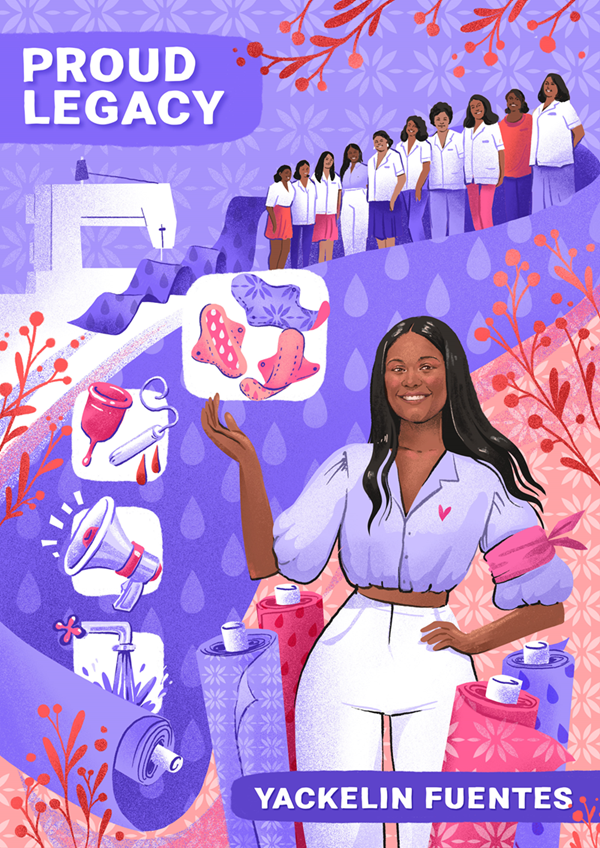
Water is a vital resource, and for Yackelin, it was also what allowed her to discover her calling. She grew up in La Guajira, Colombia, next to the Caribbean Sea. As the youngest of three sisters, she saw them deal with menstrual hygiene management and development. And although she first heard about menstruation at the age of 8 and was impacted by it, during her adolescence she eagerly awaited her turn: “I was desperate because I also heard my friends talk about it and I wanted to experience it. I asked my mom, and she told me that it would happen when my body asked for it,” she comments.
Obstacles to menstrual hygiene
Yackelin remembers the exact day she had to manage her menstrual hygiene for the first time. “I was 16 years old. It was January 6th, and I cried with happiness,” she says. However, this management becomes more complex when there is no safe access to water and sanitation.
What do we mean when we talk about menstrual hygiene? That women and girls who are menstruating have the possibility to use safe hygiene products to absorb or collect their period, that they have access to water and sanitation services offering privacy as many times as necessary during the menstrual period, using soap and water to wash, and that they can properly dispose of their waste.
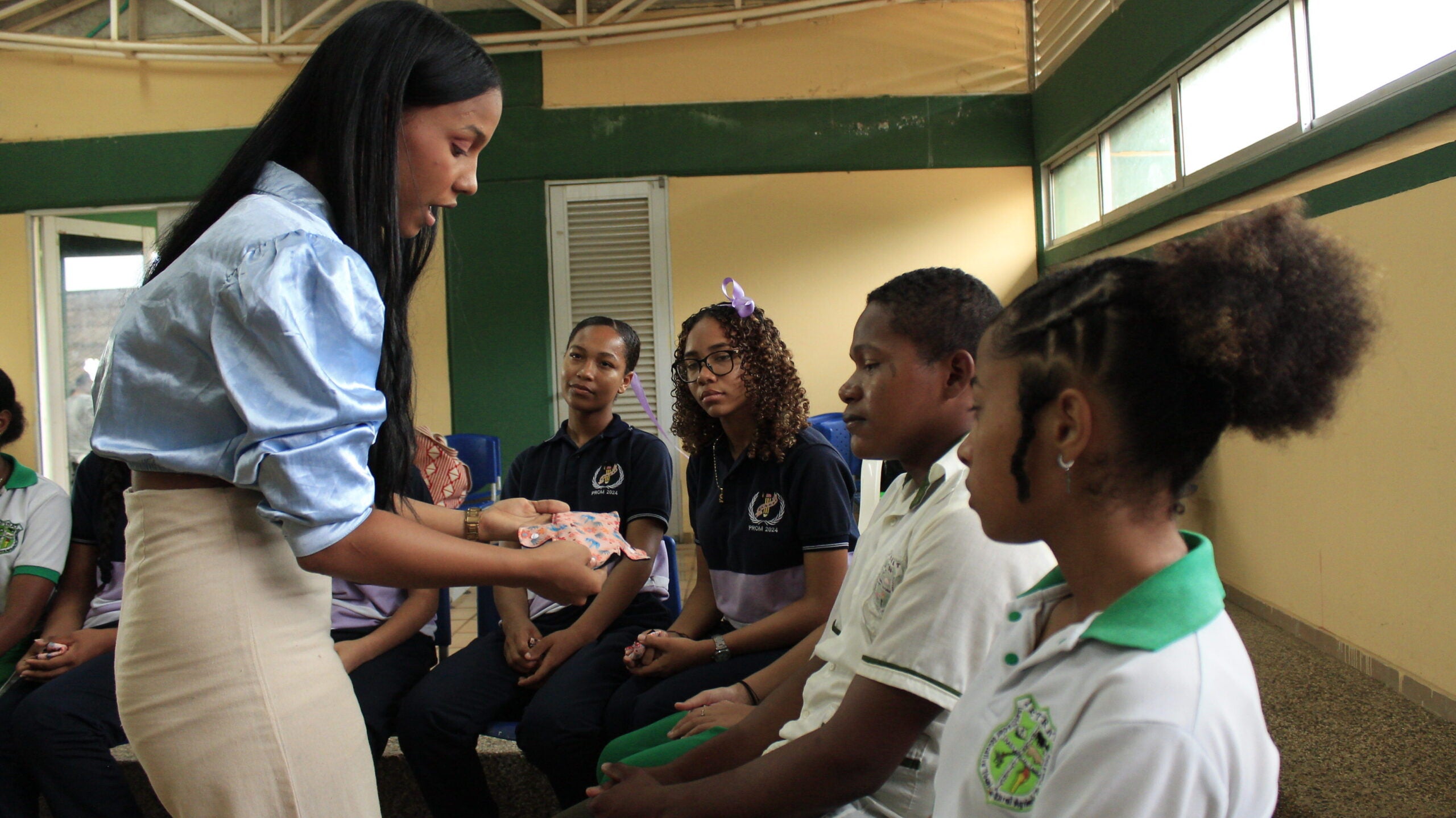
In Colombia, although 95% of households in urban areas have access to drinking water from the network, in rural areas the percentage is only 55%, according to OLAS data. Furthermore, coverage often declines depending on the time of year. “When there is a water shortage, we had to go to the rivers or buy water, and this was not easy. We didn’t have the right resources to take care of our bodies,” explains Yackelin.
When resources are scarce, menstrual hygiene is also something that many women cannot afford. According to the National Administrative Department of Statistics of Colombia (DANE), about 45,000 women do not use products to care for their menstrual hygiene.
Pride and hygiene
For Yackelin, although overcoming access gaps could be complex, the cultural gap was much worse.
Quickly, Yackelin realized that there are many taboos around menstrual hygiene, and she was able to confirm this in her closest circles.
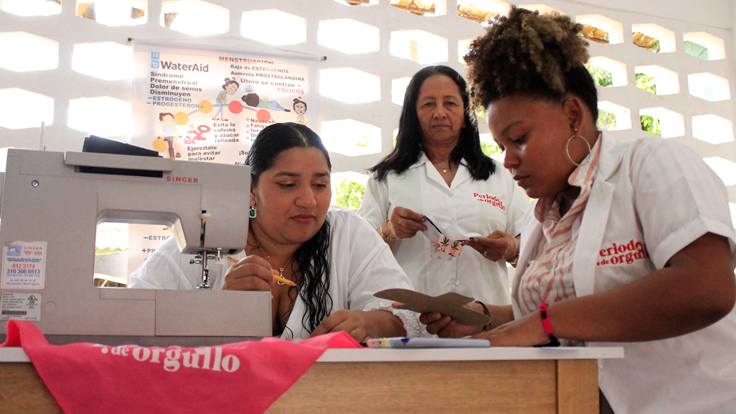
The strongest part was trying to break these taboos at home. Although her mother is a nurse’s assistant, her father did not talk about these issues with the same ease. “My dad is not very expressive. Although he lives with five women, he was a bit apathetic about this topic. He told me not to leave anything lying around, to be careful. And I felt rejection from him. Inside, I felt that emptiness. I didn’t understand why,” she says.
The solution came from an unexpected place two years ago. Yackelin’s school was inviting adolescent girls to a program called “Período de Orgullo,” (called Proud Legacy in English) coordinated by Water Aid. “They invited us to participate in a menstrual hygiene workshop. I didn’t know what it was, but I said yes, and I liked the topic because I saw a certain taboo when talking about menstruation,” she explains.
In the workshop, Yackelin learned basic concepts about menstrual hygiene, its relevance, and even how to make reusable pads. This experience, along with other women from indigenous and Afro-descendant communities, has allowed more than a thousand menstruating people to have access to reusable pads.
The impact was such that Yackelin decided to start sharing this knowledge among her closest circles and become a spokesperson for these workshops.
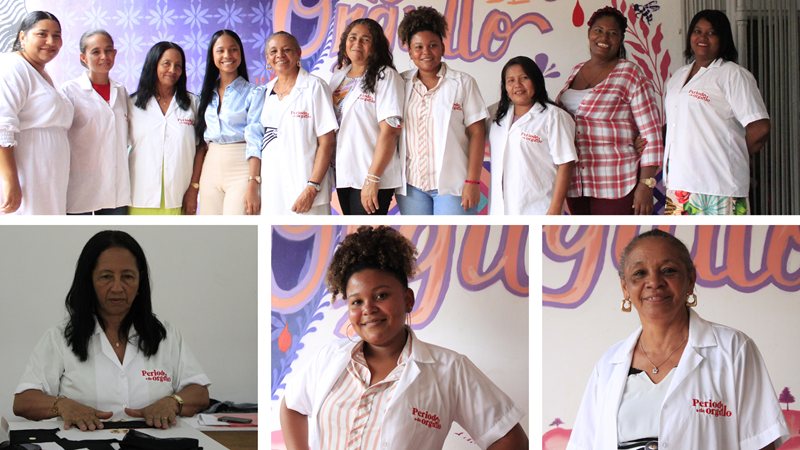
Her greatest challenge was talking to her father and explaining why it was necessary to talk about the topic and how not being able to communicate it made her feel. “I told him that as a man, he hadn’t been educated about menstrual hygiene, but that it’s normal. And he said, ‘it’s true, I have no reason to reject you.’ This improved my relationship with my dad,” she says.
These conversations not only helped Yackelin feel empowered but also led her to discover her calling to communicate and help the women and men in her community eliminate taboos. Thus, she has given various workshops to other girls and even adult women on menstrual hygiene. Her influence has been such that even her father has participated by sharing his experience with her. “I feel so fortunate to be able to transform and help my dad, my friends, and many other women,” she says.
Today, Yackelin faces a new challenge. With her higher education studies completed, she is preparing for the State Examination of Secondary Education of Colombia (also known as IFE in Spanish) to enter university. “I am going to take the tests to achieve the score I want to have, to access my career, which is Social Communication,” she says. And although there are still other obstacles to overcome, nothing stops her. “It’s not easy because my parents don’t have the resources, but I have the initiative and the desire to do more. I want to put my career at the service of the community, for them and for my family,” she says
At the IDB, we are working on actions to promote adequate menstrual hygiene from the humans rights to water and sanitation perspective. An example is a project currently implemented for water, sanitation and hygiene in rural areas in Haiti. This project seeks to significantly improve infrastructure in selected areas of the country, including the construction and rehabilitation of water infrastructure, such as wells and handwashing stations, and the installation of separate latrines in 152 public buildings in the communal sections of the Center, South, West and North.
Implemented by UNICEF, the hygiene component of the project focuses specifically on menstrual hygiene in schools. Training sessions are held for community leaders, teachers and school health clubs, and girls of menstruating age will be trained as peer educators to transmit knowledge, distributing best practice kits to support these initiatives.
We hope that Yackelin’s experience, learning and leadership motivates people to break taboos and recognize this important need for access to water and adequate sanitation for all people.
Series: Upstream Women
Follow each story to learn more about the lives of women who have worked for the benefit of their community with tenacity, perseverance, and acquiring leadership in spaces that used to be only for men.
This series is supported by the IDB together with AECID has the common objective of providing quality water and sanitation services in rural areas of the region. Learn more about the projects executed so far with the Water and Sanitation Cooperation Fund (FCAS) in this publication.
To learn more about “Upstream Women,” download our publication here and subscribe to our blog here.
Upstream Women Team:
Coordination: Anamaría Núñez, María Augusta Olmedo, and Leticia Ortega
IDB Gender Specialist: Naiara Martínez
Content: Andrea Ortega Carreño and Paul Constance
Illustration: Natalia Lyskina and Carolina Curbelo
Audiovisual production: Adriana Loeff

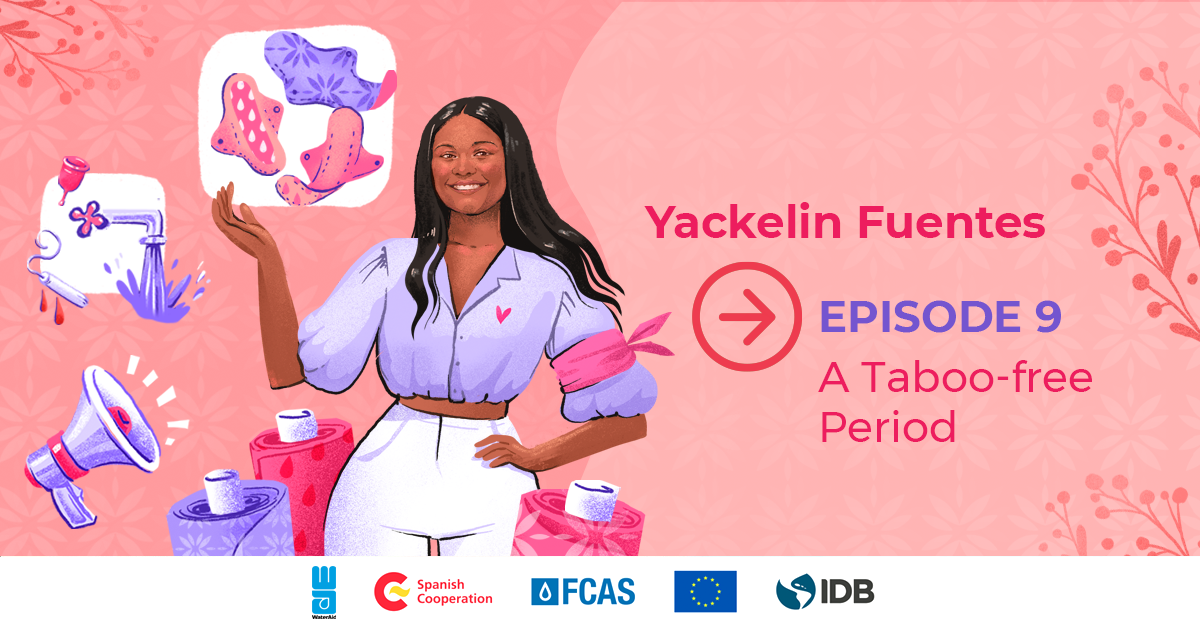
Leave a Reply